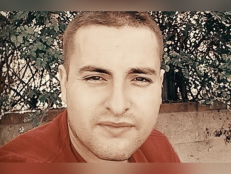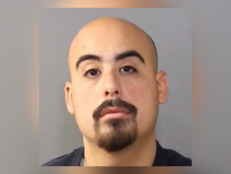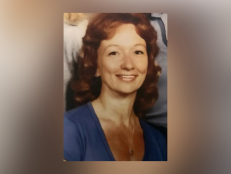Lt. Joe Kenda Talks About His New Book, 'I Will Find You'

Hachette Book Group
“I Will Find You” by Detective Lt. Joe Kenda
Detective Lt. Joe Kenda has captivated, educated, and illuminated TV audiences for seven seasons on the smash Investigation Discovery series, Homicide Hunter.
Now, the former Colorado Springs police detective who solved 387 murders is taking his stories to print with I Will Find You: Solving Killer Cases From My Life of Fighting Crime (Hachette Book Group).
The book is everything Homicide Hunter fans could hope for and more. It’s also a perfect introduction to Lt. Kenda for those who are just getting to know him and the one-of-a-kind storytelling style he brings to recounting his legendary career.
Lt. Kenda honored CrimeFeed by talking to us about this new project. I Will Find You debuts both in print and as an audiobook on September 26.
CRIMEFEED: A huge factor in your success on TV has been that you work without a script. You just talk right to us, right from your head and your heart. How was it different to get all those stories down on paper?
LT. KENDA: It was somewhat different. And the difference was my ghostwriter, D. Wesley Smith. I told him, “Just let me do what I do.” So we talked for hours on the phone, over week and months, and he would take notes by typing. He can type faster than I can talk. He is a true wordsmith.
When we were done, he said, “Well, that’s it. It’s all there. All I have to do is organize it, assemble it into a working form, and deliver it.” I think Wesley really captured the voice clearly.
You’ve often said that human beings are capable of absolutely anything. Did you ever imagine you’d be capable of becoming an international TV star?
Absolutely not! If you had told me 10 years ago that any of this might have happened, I would have said you are on weapons-grade narcotics, and I would have hung up on you!
If you and I knew what people wanted to watch, we’d be very rich. I don’t think anybody knew this would happen or could have seen this coming. I think it was more of an experiment. Someone said, “Let’s put this on and see if people like this.” Apparently, people like it, or they like something about it.

I Will Find You by Detective Lt. Joe Kenda / Hachette Book Group [Amazon]
What people like about it is you, Joe!
Okay.
You talk often of PTSD and being haunted by your work — but that it’s still worth it. What has made it possible for you to take on that burden?
I don’t honestly know. I just decided to live with it. I was unwilling to surrender to it. Now if you talk to a psychologist or a psychiatrist, they’ll tell you to picture a leaf floating calmly on a stream or some other such nonsense. It’s nonsense.
You can’t un-see what you have seen; you can’t un-know what you know; you can’t undo what’s been done. You live with it. It’s called adulthood.
You talk about the three main factors in murder being money, sex, and revenge. What is it about them?
Those are the three primary motivators among human beings — money, sex, and revenge — in that order. Often it’s not one of those alone, but a combination of them.
When it comes to a motive in a murder, it’s the emotion that people attach to those things. Murder happens when emotions overcome judgment. For example, if you’re exercising good judgment, you’ll call a divorce attorney. When you’re overcome with emotions, you’ll empty a .45 automatic into your wife and feel great while you’re doing it.
You may want to apologize afterward, but society will not just politely accept your apology.
You say that the majority of suspects waive their Miranda rights and just start talking to the police. That seems insane. Why does that happen?
It happens because people believe they are successful liars. And the truth is: No one is successful at lying.
Why it happens is because when the suspect was four or five years old, he lied to his mother, and it worked. The mother knew he was lying, but she decided it wasn’t worth making a big deal of it. The problem is now he’s 40 years old and he thinks:
“Well, I’m very smart. I am going to talk my way out of this room, and you’re going to take these cuffs off me and open the door and apologize for interrupting my otherwise very pleasant day.”
It never happens. Nobody is successful at lying.
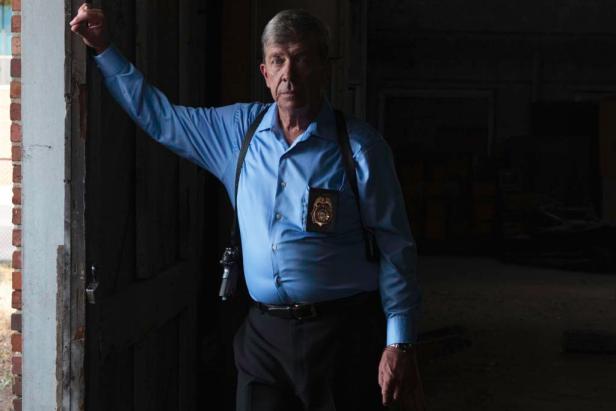
Lt. Joe Kenda
One of the first questions you say you ask yourself at a crime scene is, “Did the victim have a secret life?” How common is it for people to have a secret life that leads them into trouble?
Well, everybody has one, a secret life. Some are more serious than others. You don’t tell everything to your spouse. You don’t tell everything to your children. You don’t tell everything to the people you work with.
Most secret lives, as with most things human, are benign. You may have a secret fascination with badminton, but then you may have a secret life centered around cocaine or methamphetamine or heroin. Drugs have a lot to do with it. Narcotics.
For example, you may invite your neighbor in and he may use your bathroom. Then you check your medicine cabinet and it’s empty. It’s pathetic. It’s weakness. It’s an addictive mentality.
Heroin is back in a big way. Cocaine scared people. Meth scared people. So now we’ll go back to good ol’ reliable heroin. Wouldn’t being addicted to diet cola be a better idea?
Now more than ever, the public seems fascinated — and entertained — by true crime. Why do you think that is?
People have always loved a mystery. Thousands of years ago, we gathered around the fire and somebody said, “Tell me a story.” And if you were good at it, chances are you’d be asked to tell another one.
Why is true crime so popular? Why are murder mystery novels so popular? What does John le Carré sell so many spy novels? Because people love a story, and they love a mystery, because you get involved and you don’t know how it’s going to turn out.
On the show, we tell the truth. These mysteries are not a Hollywood invention. These were humans who had names and addresses and lives. These were people and that makes the greatest connection to the story.
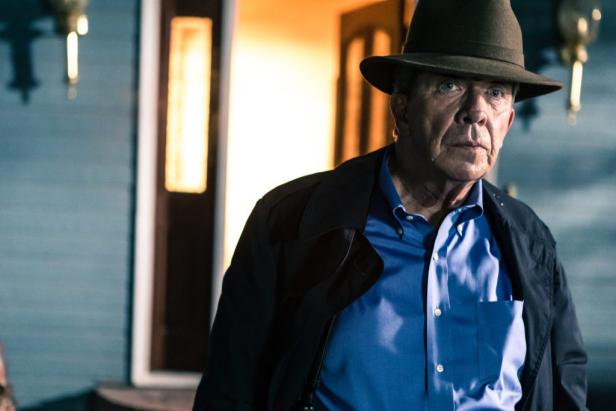
Investigation Discovery
Lt. Joe Kenda
The book is great, and we’re also excited about the audio version. Can you tell us about recording it?
There’s a woman from Hachette Books, Christine Farrell, who handles the audio recordings. I showed up to do the recording and she told me they almost never have authors read their own work because, frankly, most authors are nerds. So they hire actors or voice performers to put some feeling behind it.
I didn’t want it to sound like anybody else, I want me to sound like me! So I told her I’m not going to read it, I’m going to perform it. I said, “Just let me read the first two paragraphs and that’s how I’m going to do it.” So I did and there was silence. Then she said, “Just do it like that.”
Later, of course, they had to do some pickups, so they called me in. It took 20 minutes. She said there were 10 mispronounced words.
This was in Virginia, and the sound of the air conditioning was interfering with the recording, so we had to turn it off. So this was four days at 105 degrees. I read for 30 hours in 105 degrees!
I Will Find You is a perfect companion to Homicide Hunter. Any final thoughts?
It really was a joint effort with Wesley. We went over everything for months, back and forth — “Get rid of this”; “Move that there.” We went through it over and over again. I think we did a good job.
Of course, the final decision comes on September 26 when the book goes to the jury of the public. And they will render a verdict!
Watch Now:

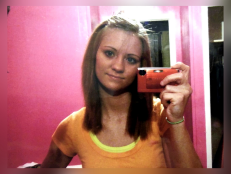


![Selena receives a Grammy Award at The 36th Annual Grammy Awards in March 1994 [via Getty Images]](http://investigationdiscovery.sndimg.com/content/dam/images/investigationdiscovery/crimefeed/legacy/2021/03/getty-selena-quintanilla-perez-1309300538.png.rend.hgtvcom.231.174.suffix/1617128091576.png)

![Hannah Graham [left] was found murdered on Sept 24, 2014; Morgan Dana Harrington [right] was found in January 2010. DNA has linked the two murders to Jesse Matthew Jr.](http://investigationdiscovery.sndimg.com/content/dam/images/investigationdiscovery/crimefeed/legacy/2022/09/charlottesville-police-department-hannah-graham-virginia-state-police-morgan-dana-harrington-09082022.png.rend.hgtvcom.231.174.suffix/1662659468172.png)
